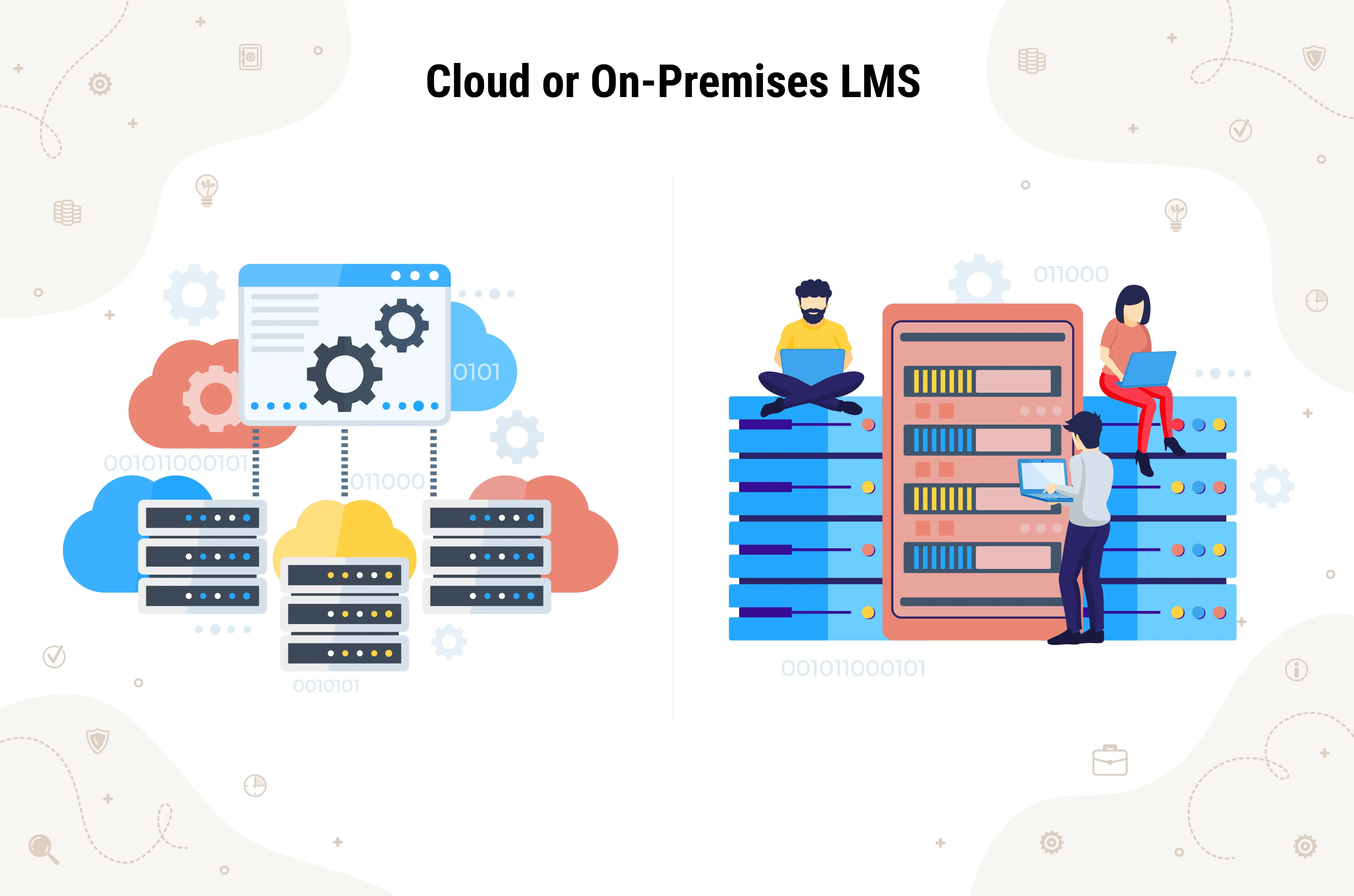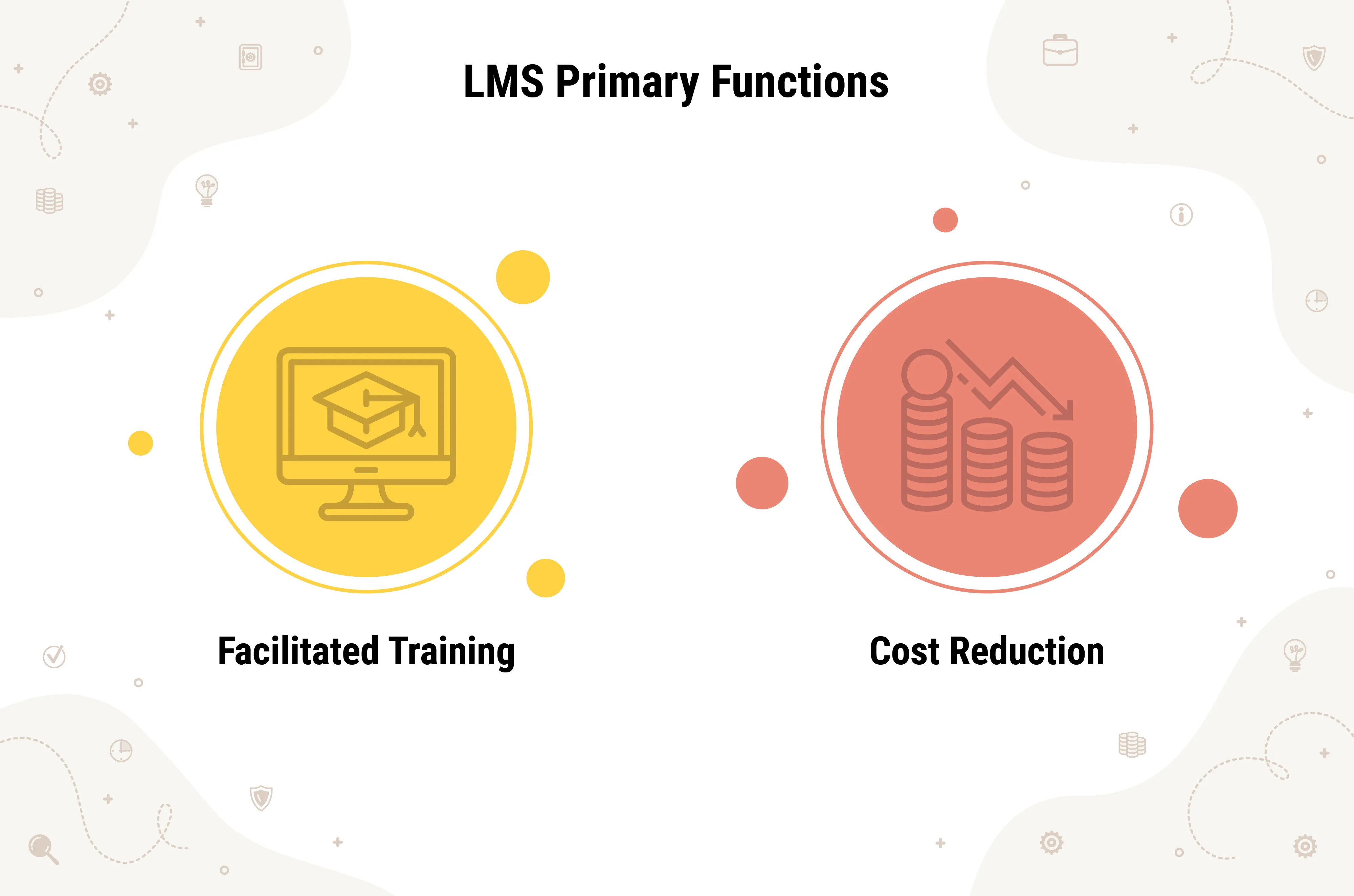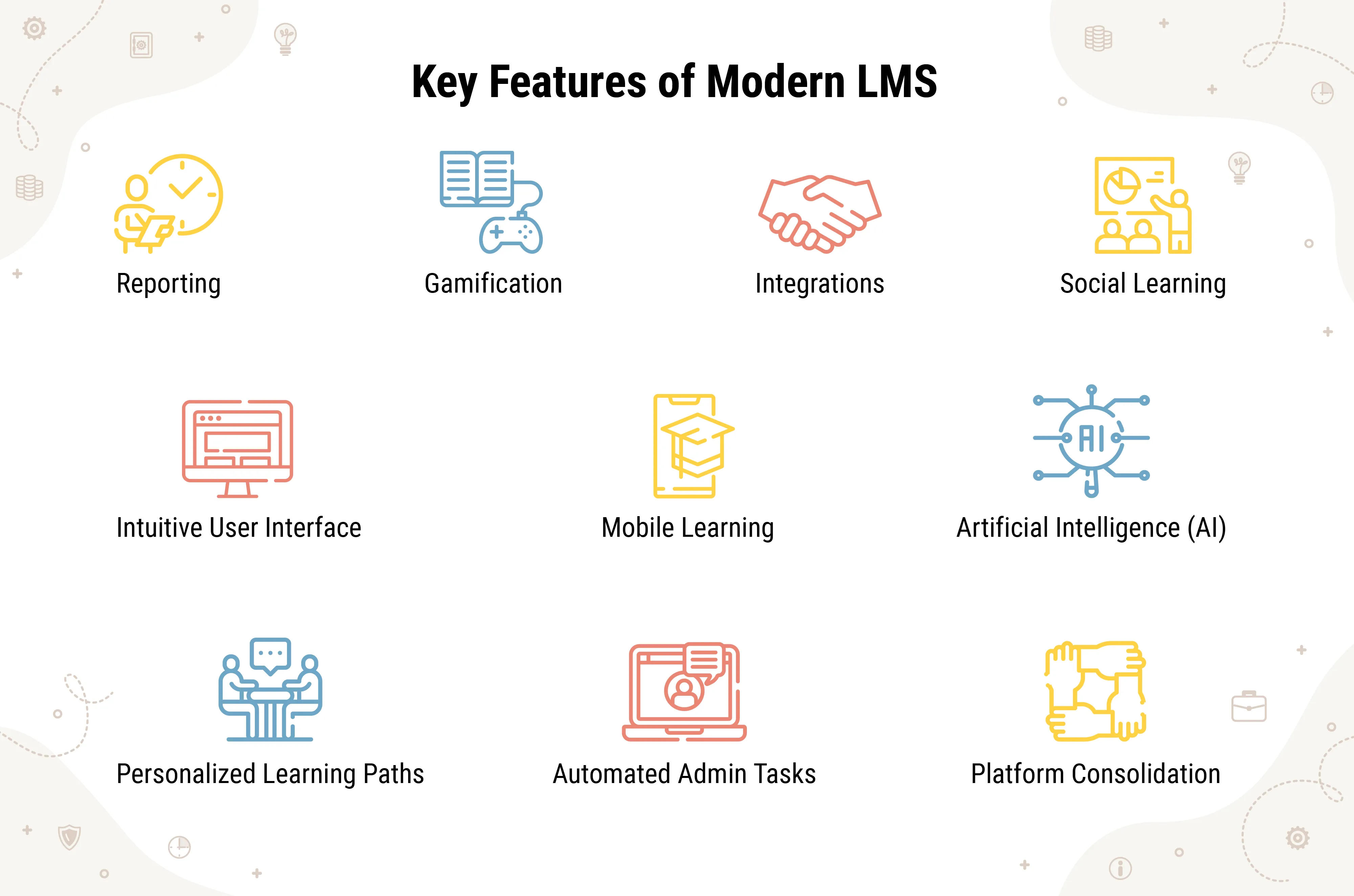A Short Guide to What a Learning Management System Is
Table of contents
Educational and training programs for employees are common for many businesses, and with an LMS, companies can significantly reduce time and money investments in such training. So what is LMS, how to choose the proper one, what are the system’s prime functions and benefits, and what should a modern LMS offer in terms of functionality? Let’s figure that out!
What Is LMS?
LMS, which stands for Learning Management System, is an ‘engine’ of eLearning that helps in creating, managing, and delivering any types of courses. Each LMS is made up of two crucial elements: a server component and a UI.
- The first one is responsible for the provision of the core functionality, including authentication, delivery of notifications, data management, etc.
- The latter is the visual representation of what happens in the engine, so administrators, instructors, students, and other types of users can use LMS with ease.
What Are the Types of LMS?
Not all LMS are equal. Actually, based on requirements, it is possible to choose from different options. First of all, Learning Management Systems fall into free and commercial ones.
Open Source or Commercial LMS
When it comes to choosing between free and commercial options, it is important to consider the benefits and pitfalls each of these types offers, to make the right, long-running decision.
The most evident benefit of the open-source software is that it comes for free. Nevertheless, free options are often designed for sophisticated users and require support services to help a novice user.
In contrast to the open-source, commercial software is built in the way to be tailored to specific users’ needs and that is why it’s much easier to use for beginners, as well as easier to deploy. But the pitfall is that such a solution usually comes at a significant price. Nevertheless, it pays for itself.
Commercial software comes in two forms: Cloud and On-premises. Let’s look at each in more detail.
Cloud or On-Premises LMS

In most cases, scalable commercial learning management systems are available as:
- On-premise, or locally hosted solutions
Although the locally hosted LMS can be customized, upgraded, and supported on the side of its owner, it requires having an internal IT team. So the solution becomes the best pick for companies having the IT staff in place.
- Cloud, or hosted on the vendor’s side solutions
Commonly, it’s coming in the form of Software as a Service (SaaS). When it comes to cloud solutions, the monthly support and upgrades are done on the side of the vendor, ensuring easy scaling ups and downs when needed.
There are also variations with integrated solutions, as well as those capable and incapable of creating learning courses.
LMS primary functions
Despite the fact that modern LMS shares a set of functions, there are two crucial ones: training facilitation and cost reduction.

LMS for Facilitated Training
This function is achieved through generation, distribution, and tracking of employees' training. Furthermore, an LMS ensures that the training itself will be more exciting and interesting for those undergoing it, meaning that the material will be learned better. When it comes to statistics, it shows that training with LMS tends to increase retention rates by 25 to 60 %, while traditional training results are only by 8 to 10 %.
LMS for Cost Reduction
It is true that the development of an LMS requires significant money investments but the truth is that in most cases, the system pays for itself. One of the best proofs of that can be seen in the example of the Cisco company that cut its overall training costs by about 40% to 60% with LMS. The trick is that eLearning frees companies from investments associated with renting physical learning spaces/classrooms, as well as hiring professionals and constantly spending money on paper-based products.
Both functions are very beneficial for businesses. Nevertheless, the list of advantages offered by LMS is not limited by these two, so let’s see what else it has on offer.
Key Benefits of Learning Management Systems Software
If we generalize the benefits of LMS, streamlined learning activities are becoming its crucial benefit. And here are how learning management systems make it possible:
Easily accessible training
LMS can work on both desktops, web, and mobile, in this way opening more opportunities for training.
Tailored training sessions
With an LMS, it is possible to adjust your training program to any type of user, whether a novice or the one mastering the gained skills.
All learning materials in one place
The convenience of having all the needed training materials in one place and available on the go ensures more efficient and productive training.
Embedded analytics
Analytics tools in LMS ensure your ability to analyze learning patterns and adjust the system for more personalized learning, which results in better outcomes.
Automated learning processes
There’s no need to waste time on such important yet time-consuming tasks as scheduling, invitations, and follow-up support.
As you can see, LMS impacts eLearning in the most beneficial way. But as soon as systems differ one from another, choosing or developing the one requires paying attention to features.
Key Features of Modern LMS
So what are the must-have features of a modern learning management system? The top 10 include:

For sure, these are just general requirements that will ensure your system’s modernity. Nevertheless, you may not need some of the above-mentioned features or require some other for successful performance. The best thing is that you can literally include anything you need, building your system in the way to be tailored to your company’s specific needs and goals.
The Bottom Line
Offering wide functionality, automating certain tasks, and providing a range of benefits, LMS became a powerful tool for companies handling eLearning courses. Nevertheless, a broad range of opportunities such systems have on offer can sometimes be confusing, especially when it comes to the development stage. So in addition to creating a clear picture of what needs to be done, companies should also pay a lot of attention to choosing a vendor.
At Emerline, we generally start cooperation with consulting services that include a deep analysis of your business for the definition of its key goals, perspectives, and desired outcomes. On the basis of the analysis, our specialists provide you with a comprehensive picture of the solution that will work for your business success and, after agreeing with you on all the details, we assemble a team of specialists who will make it come true.
We take advantage of the latest tools and technologies, deliver on time and within a predefined budget, and take every step needed to ensure fruitful cooperation. So if you are planning to build an LMS or want to learn more about the possibility or advantages of its implementation into your company’s processes, contact us for a free consultation. We are always here to make your tech dreams come true!
Published on Jan 19, 2023





